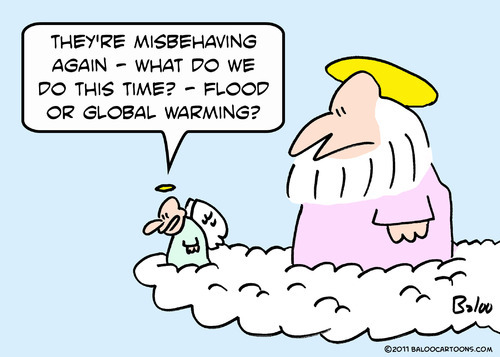Climate Change Weekly #122
Winter temperatures in the contiguous United States declined by more than a full degree Celsius (more than 2 degrees Fahrenheit) during the past 20 years, National Oceanic and Atmospheric Administration data show. The data contradict assertions that human-induced global warming is causing a rise in winter temperatures that alarmists say is causing an outbreak of bark beetles and other calamities.
Several cities in Michigan and Wisconsin experienced their coldest winters ever this year. Even so, the data also contradict assertions that the extremely cold winter of 2013–14 was a one-time anomaly. The winters of 2000–01 and 2009–10 were similarly cold across the United States, according to the NOAA data.
The NOAA data show all nine U.S. climate regions are experiencing winter temperature decline.
“They are all a downtrend,” the International Climate and Environmental Change Assessment Project observed in a blog post on the cooling trend. “Not all obviously statistically significant, but no region had warming.”
Global warming alarmists frequently claim winters are getting warmer, resulting in a variety of asserted harms. For example, alarmists claim warmer winters are responsible for bark beetle infestations in the western United States, even though bark beetle infestations have occurred for millennia. Alarmists also claim warm winters are allowing mosquito populations to thrive and spread disease. Even if warmer winters were a substantial factor in either event (the science indicates they are not), the 20-year winter cooling trend defies these alarmist assertions.
FOR MORE INFORMATION: Environment & Climate News and ICECAP
IN THIS ISSUE
Crop production defies alarmist crisis of the week … Greenland ice sheet finally halts its advance … Study shows lobsters benefit from warmer temperatures, lower pH … Noonan: “What is our foreign policy? Disliking global warming?” … Warmists claim lowering income will make people happier … NOAA: Atlantic hurricane activity hits 30-year low
CROP PRODUCTION DEFIES ALARMIST CRISIS OF THE WEEK
Global warming alarmists filled the media with claims that global warming is threatening crop yields. Contradicting these claims, U.S. and global crop yields continue to set yearly records as our planet continues its modest warming.
The United Nations Intergovernmental Panel on Climate Change (IPCC), which has consistently predicted substantially more warming than has actually occurred, compiled a draft report claiming global warming is harming crop production and will cause a 2 percent decline in global crop production per decade for the rest of the century. A Time magazine article on the topic, titled “Climate Change Could Cause the Next Great Famine,” typified the media’s sensationalism of the claims.
“[A]s the globe keeps warming, crop yields will keep shriveling unless drastic steps are taken to adapt to a changing climate,” Time warned.
Objective facts prove just how silly the IPCC and Time magazine claims are. As I documented in a recent Forbes.com column, U.S. and global crop production – and especially production of the most important staple food crops – are rapidly increasing as our planet modestly warms. Global corn, rice, and wheat production have more than tripled since 1970. The United States is experiencing a similar explosion in crop production, with corn and rice production more than tripling since 1970. During the past few years, the United States has set crop production records for alfalfa, cotton, beans, sugar beets, sweet potatoes, canola, corn, flaxseed, hops, rice, sorghum, soybeans, sugarcane, sunflowers, peanuts, and wheat, to name just a few.
MORE INFORMATION: Environment & Climate News and Forbes.com
GREENLAND ICE SHEET FINALLY HALTS ITS ADVANCE
The Greenland ice sheet is finally receding a little bit, after more than 70 years of cooling temperatures and long-term ice sheet advance. Global warming alarmists are predictably claiming the halt to Greenland’s ice sheet advance is a climate catastrophe.
Cherry-picking an extremely short time period, lasting less than a decade, researchers report the Greenland ice sheet retreated some during a nine-year period ending last April.
“Now, there’s more ice leaving than snow arriving,” said study co-author Michael Bevis in USA Today.
As Environment & Climate News previously reported, the 1980s and 1990s were the two coldest decades in Greenland since the 1910s. The 1980s and 1990s were a full 1.5 degrees Celsius colder than the 1930s and 1940s. As Greenland temperatures rebound from the extended cold spell, it stands to reason the ice sheet will recede some.
Nevertheless, the media are spinning the foreseeable and fortuitous development as another global warming crisis.
“These new measurements show that the sleeping giant is awakening and suggest – given likely continued Arctic warming – that it’s not going back to bed,” alarmist researcher Jason Box told Climate Central.
By comparison, the recent Greenland ice sheet retreat has been occurring for barely half as long as the current halt in global warming.
MORE INFORMATION: Environment & Climate News
STUDY SHOWS LOBSTERS BENEFIT FROM WARMER TEMPERATURES, LOWER pH
The Norway lobster, with a range including the northeastern Atlantic Ocean and Mediterranean Sea, benefits from warmer water temperatures and lower pH, scientists report in the peer-reviewed Ecology and Evolution. Scientists subjected female egg-carrying lobsters to progressively warmer water temperatures and lower pH levels. The scientists observed no negative effects of warmer temperature and lower pH, although they did observe several benefits. “[T]his species would benefit from global warming and be able to withstand the predicted decrease in ocean pH in the next century during their earliest life stages,” the scientists reported.
SOURCE: NIPCC Report
NOAA: ATLANTIC HURRICANE ACTIVITY HITS 30-YEAR LOW
Atlantic hurricane activity is at its lowest level in more than 30 years, the National Oceanic and Atmospheric Administration reports. “There were no major hurricanes in the North Atlantic Basin for the first time since 1994. And the number of hurricanes this year was the lowest since 1982,” NOAA observed. On a related note, the United States is currently experiencing its longest period in recorded history without a Category 3 or higher hurricane strike.





